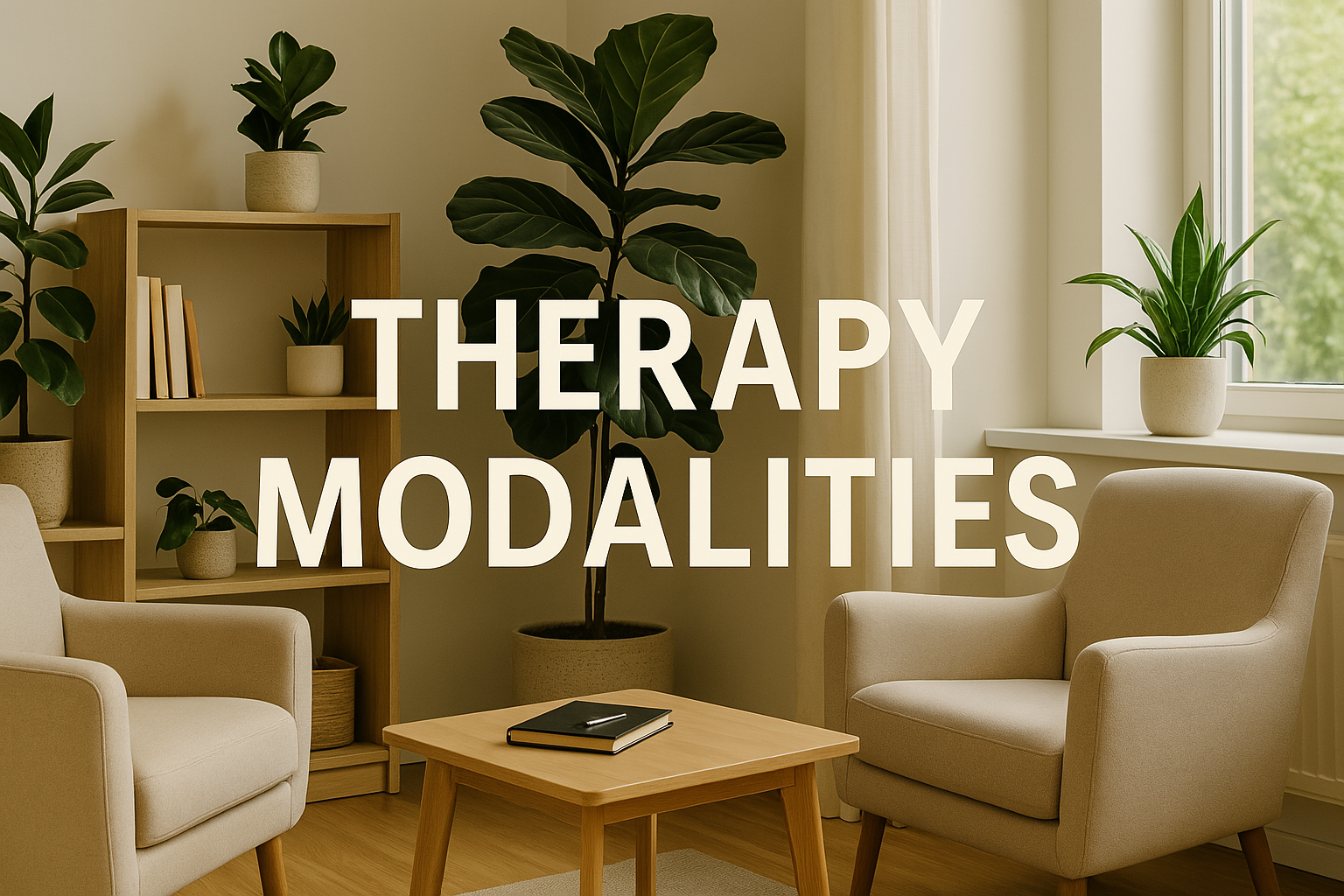
Eye Movement Desensitization and Reprocessing Therapy (EMDR)
Eye Movement Desensitization and Reprocessing (EMDR) is a structured therapy used to help people heal from trauma and distressing experiences. EMDR begins by focusing on safety and stability, including addressing symptoms such as intense emotions, suicidal thoughts, substance use, or physical stress responses. Safety also involves building internal coping skills through guided imagery, mindfulness, deep breathing, and grounding exercises using the five senses. Another key part of EMDR is learning to stay aware of the present while gently talking about past experiences, rather than feeling overwhelmed by them.
Cognitive Behavioral Therapy (CBT)
Cognitive Behavioral Therapy (CBT) is fundamentally about building insight into how and why we think the way we do. As we live our lives, we interpret what is going on around us and form beliefs and understandings of the world. These meanings affect how we perceive the world, and we behave accordingly. The role of a CBT therapist is to help their clients to understand and examine their beliefs: to help them to make sense of meanings and how they navigate the world
Dialectical Behavioral Therapy (DBT)
Dialectical behavior therapy (DBT) is a modified type of cognitive
behavioral therapy (CBT). The role of a DBT therapist is to teach people
how to live in the moment, develop healthy ways to cope with stress, regulate
their emotions, and improve their relationships with others. DBT was originally intended to treat borderline
personality disorder (BPD), but it has been adapted to treat other mental
health conditions.
Emotionally Focused Therapy (EFT)
Emotionally focused therapy (EFT) is used to improve attachment and bonding in adult relationships. While often used for couples, it has also been adapted for use with families. This treatment can help couples and family members form a more secure emotional bond, which can result in stronger relationships and improved communication.
Gestalt
A core belief in Gestalt psychology is holism, or that the whole is greater than the sum of its parts. Increase your awareness with the "Here and Now."
Acceptance and Commitment Therapy (ACT)
The core belief is that people to embrace their thoughts and feelings rather than fighting or feeling guilty for them. It may seem confusing at first, but ACT paired with mindfulness-based therapy offers clinically effective treatment.
